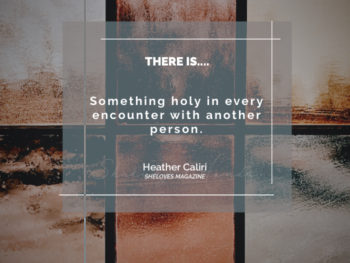
I knew I had gone deep into researching the End Times when I came across the phrase “immanentize the eschaton,” which—forgive me—sounds like something Han Solo would do to fix the hyperdrive on the Millennium Falcon.
The actual meaning of the phrase? To “…bring about the…the final, heaven-like stage of history.” It was the rallying cry of conservatives in the ‘60s and ‘70s, critiquing the utopian projects of communists, Nazis, and liberal theologians who imagined their ideology would bring Heaven on earth. I came across it the Wikipedia article about Postmillennialism, one of the historical views of the end times.
I’ve been a Christian for thirty years. I’m still trying to define all these terms, not to mention decide which of them I should believe.
Please tell me I’m not alone in admitting that End Time jargon makes my head spin: “dispensation”, “eschatology,” “premillennialism,” oh, my. I want to better informed—I really do. But some days, laundry is a lot simpler, and usually feels more urgent.
Full disclosure: hearing about “the Beast” was one of my first encounters with Christian theology. Since then, I’ve been discipled in a number of theological contexts—the fundamentalism that brought my sister to faith, the heavily Southern Baptist communities of my college career, and the evangelical-leaning Presbyterian church where I’ve spent most of my life. And throughout my journey, I’ve heard different, often contradictory teachings on the End Times.
Much as I might poke fun at the technical terms used to describe this complex subject, I believe that what we believe about the end of the world matters. But the prophetic books of the Bible are among the most difficult to understand, and the possible interpretations of them are quite different in their view of Jesus’ second coming, the beginning of heaven, and everything in-between.
So a little illumination is in order.
What viewpoints do Christians around the world—and the theologians we esteem—hold about the end of days?
What distinguishes each view? And where can we go to find out more?
Here, then, is a summary, in alphabetical order, of the main eschatological views of Christianity, written as impartially as I can manage. I’ve focused on four: amillennialism, dispensational premillennialism, historical premillennialism, and postmillennialism.
I’ve included a few hand-drawn timelines to help clarify the differing viewpoints, which are based on Paul N. Benware’s book, Understanding End Times Prophecy, a text written from the dispensational premillennialist point of view. I’ve simplified some of his diagrams for clarity, since Benware goes into much more depth than I can here.
May increased understanding of the end of days help us place our hope in God’s power and intentions for all of eternity.
Yes, I DID literally draw diagrams to illustrate the end of the world as we know it. You can get my quick-and-dirty writeup of the major views of the end times over at iBeleive.














 Confession: I Hate Spiritual Gifts—for The Mudroom
Confession: I Hate Spiritual Gifts—for The Mudroom